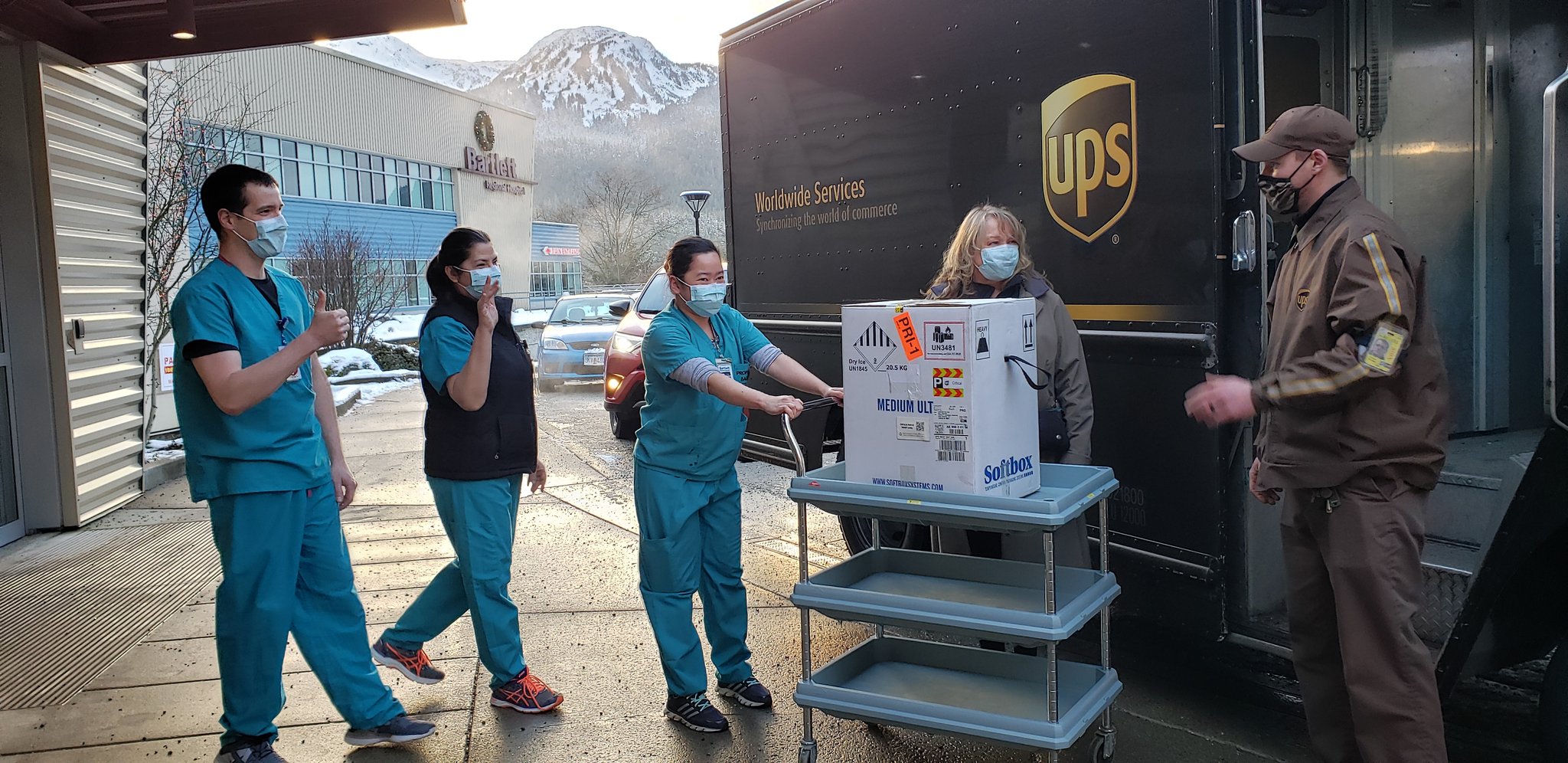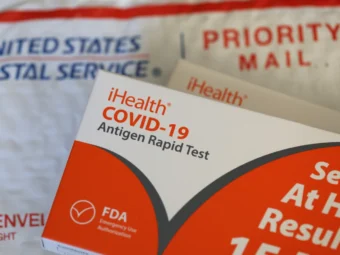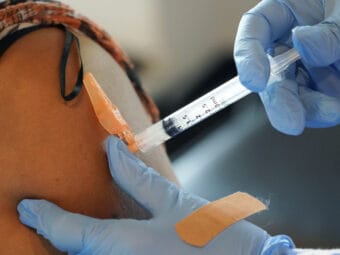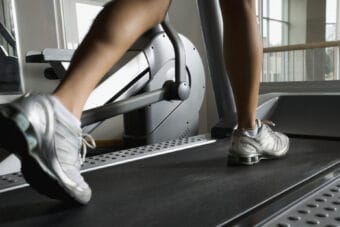
A few members of Bartlett Regional Hospital’s vaccine distribution team greeted the plane this afternoon carrying Juneau’s first 975 doses of the COVID-19 vaccine.
A UPS courier picked up the box with Pfizer’s vaccine and drove it the last few miles to Bartlett Regional Hospital.
Three hospital workers in scrubs rolled a cart out to receive the delivery. There was cheering and thanks as the delivery driver handed the package over.
The pharmacists on the distribution team locked themselves away, thawed some of the vials that have to be kept super cold to avoid spoiling and prepared individual doses.
“After it arrives in Juneau, we might be giving the first vaccine two hours later,” said Charlee Gribbon, the infection preventionist at Bartlett Regional Hospital.
Hospital staff are among the first in line to get vaccinated.
“Initially we thought maybe 130 people would want the vaccine, like, right away. And now we have 400 people on that list,” said Gribbon. “I am just so excited that people trust us, and are as excited as I am … that this is the beginning of the end of this pandemic.”
Gribbon said they can administer the vaccine to about 12 people every 30 minutes. The pace is limited in part by 15 minutes of waiting time after the injection, before checking out.
“This is a new vaccine, and we want to make sure we are completely ready for any adverse reaction, and we want to make sure we’re monitoring,” she said.
The Centers for Disease Control and Prevention has highlighted that significant percentages of people in the clinical trial had mild to moderate fever, fatigue, headaches and chills over a group that got a placebo. A few had more severe reactions.
“It’s expected. It’s known,” she said. “A fever in this case is actually good. It’s your body building antibodies. It’s working.”
To be effective, a second dose is required three weeks later. The reactions after that shot were more pronounced in the clinical trial.
“You know, you might need to lay down on a couch for a day or two while your body works,” Gribbon said.
Gribbon said they’re staggering members of the same teams at the hospital, because people are expected to take some time off after being vaccinated.
There are six hospital workers who’ve already had COVID-19. Gribbon said they’re also still eligible for the vaccine. Though at this point, getting vaccinated doesn’t come with any special privileges. It’s not free license to go breathing in anyone’s face.
The CDC said it may take one or two weeks after the second shot for the protection to take effect. The CDC also said everyone should continue taking COVID-19 precautions as the vaccines are studied in real-world conditions.
Recipients are encouraged to sign up for a CDC tool on their smartphones called v-safe. It makes reporting side effects easy, and helps the CDC monitor for them. It also gives users reminders to get the follow up shot.
“Having the vaccine does not mean that COVID-19 is already going away and that we can go back to normal right away,” said Gina Del Rosario, who oversees the Juneau Pioneer Home.
She said Safeway is scheduled to vaccinate the home’s 70 staff and up to 49 residents the last week of December.
“For a long time, I see us continuing to practice infection control, wearing our masks, hand washing, sanitizing, distancing,” she said.
Residents of long-term care facilities like hers are part of the initial groups of people eligible for the vaccine.
“There are many people who are actually excited that this is coming, residents who are waiting for the doors to open, because currently, our doors are still locked,” she said.
At Bartlett Regional Hospital, officials said vaccinations will begin Tuesday evening.


